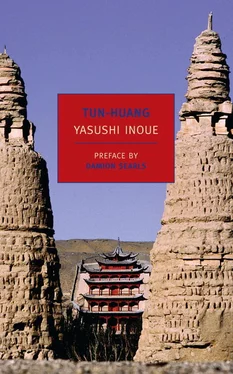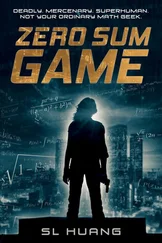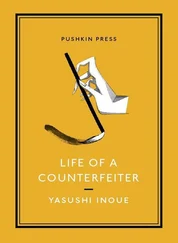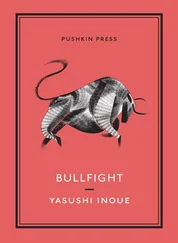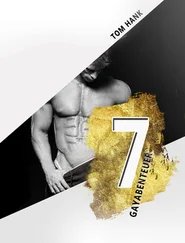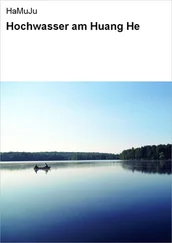Hsing-te apologized for disturbing the elder’s sleep and left immediately. He realized now that, except for the Great Cloud Temple, it might be days before the temple storerooms could be opened up.
After that, Hsing-te stayed at the North Gate headquarters until evening. In a room in an empty home nearby, he took up a brush to copy the Heart Sutra. He was offering this hand copy of the holy sutra for the repose of the Uighur princess’s soul. Hsing-te planned to store this, with the scrolls and documents from the Great Cloud Temple, in a secret cache in the Thousand Buddha Caves. Because there was so little time left, he had selected the Heart Sutra. Partly as a remembrance of his youth, he also translated it into Hsi-hsia as he copied it.
Hsing-te interrupted his work only once. At dusk the first communication had arrived from Wang-li, who had left that morning. The message revealed that the enemy and allies were presently confronting each other at a distance of about eighteen miles. Neither side was moving its troops. At this rate, if fighting should start, it would probably not be until after dawn the following morning. The instructions were to evacuate all non-military personnel from the walled town and to be prepared to set fire to Sha-chou any time. In the event that the allies were losing the battle, Hsing-te’s troops were to set fire to the city and so leave the enemy at the mercy of the bitter cold of the plains.
After Hsing-te had dismissed Wang-li’s messenger, he again took up his brush and lost himself in copying the sutra. The town was practically uninhabited by this time, and the atmosphere was unsettling, as no one knew when the fighting would begin. For Hsing-te, however, this was a tranquil period. From a window in his room he could see a large flock of birds at the edge of the sky migrating to the south like specks of dust.
After he had finished copying the sutra, Hsing-te added the following note:
The second year of the reign period Ching-yu, the twelfth month, thirteenth day (1036). The second degree candidate Chao Hsing-te of T’an-chou Prefecture of the Great Sung, while traveling west of the Yellow River, came to Sha-chou. Barbarians are attacking our country and causing havoc. The mendicant monks of the Great Cloud Temple have moved the sacred scriptures to the Tun-huang Caves and are hiding them within those walls. Thereupon, I was moved to respectfully make a copy of the Diamond Sutra and have placed it within the caves with the others.
My primary request is that the dragon king and devas will provide their protection and aid for the tranquility of the city of Sha-chou and for the peaceful existence of its people.
My secondary request is that the young girl of Kanchou will by virtue of my good act not fall into perdition and that her accumulated karmas in this world will all be erased. Moreover, I hope that she will obtain unlimited happiness and will receive the eternal protection of the Buddha.
Only when he had written the words “young girl of Kanchou” did he momentarily set aside his brush. The image of the Uighur princess as she fell from the high walls at Kanchou vividly returned to Hsing-te for an instant. The girl’s face was fairer than it had actually been, her hair had a brownish cast, and she was rather thin. The years had changed her in Hsing-te’s mind.
The sun had set below the desert horizon. In the crimson afterglow, a cloud floated, resembling the head of a yak; then its form and color slowly changed. The blinding crimson with its golden overtones gradually turned to orange, to vermilion, and finally to a light purple. When the evening dusk absorbed that purple, Hsing-te left his headquarters and mounted his camel. He cut across the center of the square to reach the place where he was to meet Kuang. Through the dusk he could see men and animals bustling about. Loading had already begun. As he approached, he saw men working frenetically near the camels, and from time to time he heard the fierce, angry tones of Kuang’s voice.
Hsing-te went directly toward him. Whenever Kuang saw his workers stumble the least bit under their heavy loads, he lashed out at them. Then he finally turned to Hsing-te, saying curtly, “The moon is out tonight.”
Hsing-te remained silent, as he was not sure of the significance of these words.
Kuang continued, “In any case, we’ll probably have to make two trips to transport these goods. It would have been terrible if there was no moon, but luckily it’s out.”
Just as he said, the pale round moon, still dull in the dusk, hung in the center of the heavens. Despite his harsh words to the workers, it was evident, as Kuang turned to Hsing-te, that he was in the best of moods.
“Is this everything?” Hsing-te asked, as he watched the mountainous pile of variously shaped packages disappear with the aid of the camel men.
“That’s what I should ask you. Are there any more?” Kuang returned the question. “If there are, bring as much as you like. As long as I accept them, I’ll guarantee the safety of a hundred, even a thousand boxes. All we have to do is to make more secret holes. The rest is just transportation.”
“There are more things, but we’ll need more time to get the rest ready,” said Hsing-te.
“We’ll leave the rest for later. We’ll make one trip with what we have here,” Kuang replied. Then he asked, as if the thought had suddenly occurred to him, “By the way, what’s inside these boxes?”
“I don’t know. I wasn’t present when each one was packed. In any case, there’s no mistake about the fact that they contain valuables.”
“Are there jewels, too?”
“Naturally, they must be included. Not that I’ve seen any, but I’m sure there must be some. There are probably all types of jewels inside — turquoise, amber, porcelain and blood jade. In any case, I’ve promised not to open them. Don’t you touch them, either.”
“All right,” Kuang muttered.
Just then, two horses carrying more crates arrived. The three young monks from the Great Cloud Temple followed. Hsing-te left Kuang, went to the three priests and asked, “Is this all?”
“Just about,” the eldest monk replied. He then explained that at first they had packed the selected scriptures, but as they became pressed for time, they had put in everything within reach. He added that various documents besides the sutras were included. Hsing-te repeated to the three monks that no matter what happened, they were not to reveal the contents of the boxes. Then he requested that they accompany him until the goods were all stored. That had been the monks’ original intention; each claimed that he planned to follow the sacred scrolls anywhere.
Hsing-te returned to Kuang and informed him that three monks would accompany them.
“I won’t allow it. I don’t mind your coming along, but the others will get in the way.” Kuang refused, but quickly reconsidered. “Well, I suppose it wouldn’t hurt to take them along. After we get there, we’ll have to return immediately to pick up the next load, so I’ll use them to stand guard over the unloaded goods.”
Kuang really did not want anyone else to have anything to do with this work, but from a practical standpoint, each additional man was welcome. He did not mention it, but Hsing-te knew the number of his men had diminished since the previous day. The hundred camels Kuang had boasted of were now reduced to almost half that number, and the fifty camel men had also been lessened by half. Apparently, the rest had run off.
When the loading was almost complete and the time of departure was approaching, Hsing-te turned once more to his headquarters and entrusted the command of his troops to the middle-aged, hare-lipped commander whom Wang-li had left especially to assist him. No one could tell what might occur while he was away, but whatever did, it was evident the hare-lipped warrior was superior to him as a field commander.
Читать дальше
